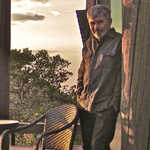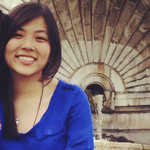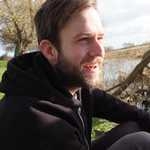Passing the First cataract.
Monday. In the morning we get ready to pass the cataract and we go with two special guides and a Nubian pilot (raïs Haçan) who should bring us to Wadi Halfa.
Our old pilot, wrinkled, with a long nose, bent on the helm and gazing out in the distance. Kids on palm trunks dive into the foaming swirls and disappear. One can see the end of their palm tree trunk pitching up when they rise to the surface - they board our deck, dripping wet - they look like bronze statues dripping with water from the fountain, sparkling in the sun. The teeth of the Nubians are longer, larger, farther apart, the musculature not as strong as the Arabs.
The rocks look like great blocks of charcoal - parts of pink granite - elsewhere the granite is veined, like marble.
At half past noon we stop below the cataracts and we spend the night in a small cove in the middle of the rocks. Walk on the rocks - the cataracts are enclosed with hills. Three of them to the left. In the background a fourth can be seen between the second and third cataracts. Two children accompany us, one small, naked, head like sheep wool, to which we had given necklaces in the morning - success of our necklaces.
On the left there’s a great, natural dike made of sand. It’s been made by the wind. We walk in its shadow - we climb on it. We were on its West side a while ago - when we reach the top, we find that the whole side is illuminated by a pale golden sunlight. We walk and let the sand collapse under our feet like a wave.





